Dry Skin
Our dermatologists at The Dermatology & Skin Surgery Center at Creedmoor offer various remedies, including gentle cleansers and moisturizers, to help restore hydration and skin health. Your skin's well-being is our priority, and we're here to provide the best care possible. Explore more about dry skin below and schedule an appointment today.
Examples of Dry Skin
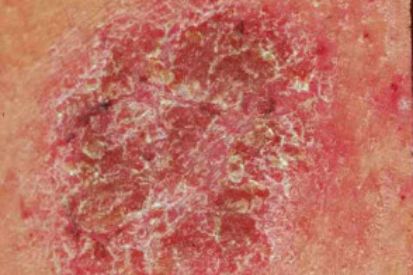
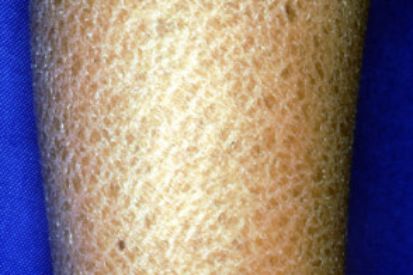
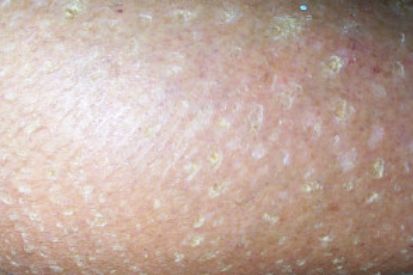
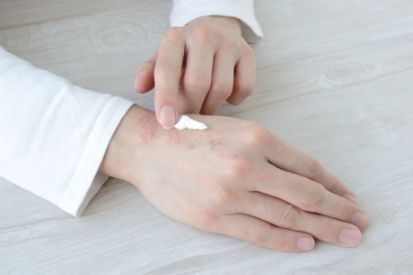
What are the Symptoms of Dry Skin?
- Skin may appear flaky or develop small, fine scales.
- Dry skin often causes itching, which can be mild to severe.
- The affected skin may become red or irritated.
- Dry skin can make the skin feel tight and rough, especially after bathing.
- In severe cases, the skin may develop cracks or fissures.
What are the Causes of Dry Skin?
- Dry skin can result from a variety of factors, including low humidity, harsh weather, hot water, aging, certain medical conditions, and dehydration.
- Dry skin occurs when the skin lacks moisture, often exacerbated by external factors like harsh soaps and internal factors like inadequate hydration.
How to Prevent Dry Skin
Preventing dry skin involves adopting a skincare routine and lifestyle practices that promote moisture retention. Here are several key strategies:
- Moisturize: Use a suitable, fragrance-free moisturizer to keep the skin hydrated. Apply it after bathing to lock in moisture.
- Protect from harsh conditions: Wear appropriate clothing to shield the skin from harsh weather, wind, and sun exposure.
- Build a custom skincare routine: Work with your skin care expert to build a routine specific to your needs.
If your dry skin is a persistent issue, we recommend scheduling an appointment with one of our certified skin experts. Our team can help you create a personalized treatment plan to alleviate your dry skin issues. Schedule today.
FAQs for Dry Skin
Yes, diet can influence skin health. Staying hydrated by drinking enough water is important. Foods rich in essential fatty acids, such as omega-3 and omega-6, can contribute to skin hydration. Consuming a balanced diet with vitamins and minerals is beneficial for overall skin health.
Yes, dry skin is often more prevalent in cold, dry seasons. Winter weather and low humidity levels can exacerbate skin dryness.
Yes, overuse of skincare products or using harsh cleansers can contribute to dryness. Choose mild products and moisturizers suitable for your skin type.
Yes, certain medications may have dry skin as a side effect. Consult with your healthcare provider if you suspect your medications are affecting your skin.
Over-the-counter moisturizers are generally safe and effective for treating mild to moderate dry skin. Look for products that contain ingredients like hyaluronic acid, glycerin, or ceramides to help hydrate and repair the skin barrier. If dry skin persists, schedule an appointment with The Dermatology & Skin Surgery Center at Creedmoor. One of our dermatologists can assess the underlying cause, recommend appropriate treatments, and provide personalized skincare advice.
With proper treatment and moisturization, you may see improvement in dry skin within a few days to a week. However, it's important to continue using moisturizers regularly to maintain hydration and prevent dryness.
From our QualDerm Family of Brands: Learn More About Dry Skin
How to Treat Dry Skin
Treatment plans often involve a combination of strategies tailored to individual needs, aiming to alleviate dryness and enhance the skin's natural moisture barrier. Regular follow-ups with a dermatologist assist in monitoring progress and adjusting treatments as necessary.
Featured Products for Dry Skin
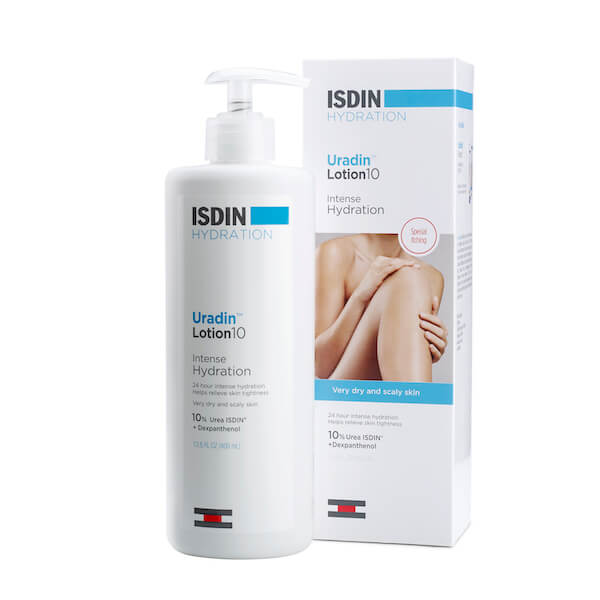
ISDIN Uradin 10 Body Lotion
Uradin re-establishes optimal hydration levels through its combined effect of Urea and Dexpanthenol. The combination of ingredients helps to relieve tightness, restores skin's natural smoothness, and provides 24-hour intense hydration. 13.5 fl oz / 50 mL

SkinCeuticals Triple Lipid Restore 2:4:2
Aging skin is increasingly susceptible to lipid depletion: the loss of natural compounds in skin's surface, present in the form of ceramides, natural cholesterol, and fatty acids. This lipid loss compromises skin's natural protective barrier. 1.6 fl oz / 48 mL
